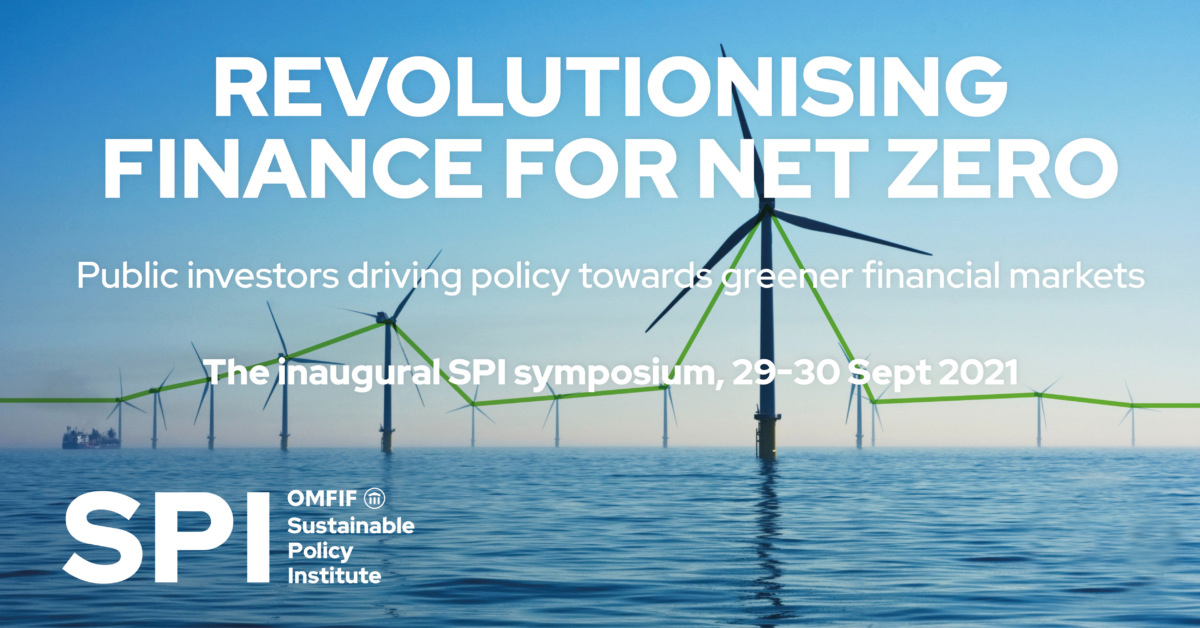
Building on OMFIF’s status as an independent think tank for central banks, the Sustainable Policy Institute brought together policy-makers, regulators, public and private sector investors and ESG experts on 29-30 September 2021 to push the boundaries of the discussion on the role of monetary policy, regulation and disclosure, as well as address key practical challenges, in driving greener financial markets to achieve net zero at a two-day virtual symposium.
Watch the public symposium sessions on demand below:
Day one: 29 September 2021
Addressing climate risk and evaluating the current global economic system
Bo Li is deputy managing director at the International Monetary Fund. Previously, Li was deputy governor at the People’s Bank of China. His earlier roles included heading the monetary policy, monetary policy II and legal and regulation departments at the PBoC. Li served as vice mayor of Chongqing where he oversaw the city’s financial sector development, international trade and foreign direct investment. He was also vice chairman of the All-China Federation of Returned Overseas Chinese. He started his career at the New York law firm of Davis Polk & Wardwell, where he was a practicing attorney for five years. Li holds a PhD from Stanford University and a master’s degree from Boston University, both in economics, as well as a JD from Harvard Law School.
The role of Eurosystem central banks in achieving net zero and driving climate mitigation
This panel discussed the role central banks should be playing in achieving net zero and the incorporation of climate mitigation into monetary policy. A key question was whether the principle of market neutrality has been overstepped in implementing climate mitigation frameworks and developing sustainable market operations, assets and capital.
Speakers

Governor, Central Bank of Ireland

Governor, Bank of Greece

Governor, Banco de Portugal

Chair Editorial Board, Editor-at-large, US, The Financial Times
The sustainable finance policy tracker
The Sustainable Finance Policy Tracker provides a comprehensive overview of different countries’ approaches to mitigating climate risks in the financial sector.
Covering 22 countries and jurisdictions, the tracker presents information on 14 areas that include regulatory and supervisory measures, climate stress testing activity, net zero strategies, green bond issuance and disclosure requirements.
View the tracker here: https://www.omfif.org/sfptracker/
Addressing climate risks through supervision: scenario analysis, stress testing and imbedding climate mitigation frameworks
Financial systems are more exposed than ever to climate impact. Incorporating climate scenarios into risk assessments is fundamental to any financial strategy and supervision framework. This panel examines various stress-testing and scenario analysis models, the necessary tools, implementation strategies and frameworks required and the impact of these models on the financial sector.
Speakers

Executive Director for Financial Stability and Risk, Bank of England

Senior Policy Fellow, Grantham Research Institute on Climate Change and the Environment, London School of Economics

Deputy Gouvernor, Banque de France

Head of Financial System Monitoring Department, Banco Central do Brasil
Integrating climate considerations in central bank portfolios
Sabine Mauderer is a member of the executive board of the Deutsche Bundesbank. She is responsible for the directorates markets and human resources. She is a member of the steering committee of the Central Banks and Supervisors Network for Greening the Financial System and chairs the workstream on scaling up green finance. She is also a member of the Exchange Experts Commission. Prior to this, she held several senior positions at the KfW Group and worked as a senior adviser at the Federal Ministry of Finance and at the German Embassy in Washington. Mauderer graduated in law and holds degrees from the Osnabrück University and the University of Mannheim.
Implementing ESG in reserves and asset management
To achieve net zero, ESG must be incorporated into investors’ decision-making, portfolios and assets. This panel discussed the latest ESG investment products, the benefits and challenges of portfolio transition, the role of ratings and current socially responsible investing strategies.
Speakers

Global Co-Head of Corporate Governance, Norges Bank Investment Management

Head of Banking Department, Bank For International Settlements

Head of Reserve Management and Collateral, Danmarks Nationalbank

Head of Policy Analysis, EMP OMFIF

Managing Director, Head of Environmental, Social and Governance Investing, Neuberger Berman
Scaling up sustainable capital markets
Sustainable capital markets and business must be scaled globally if climate mitigation is to be achieved. This panel discussed the tools and infrastructure required to achieve this, developments in green bonds and capital allocation, the role of governments and public-private partnerships, as well as opportunities, risks and solutions.
Speakers

Head of Sustainable Bonds and Finance, DZ BANK

Chief Executive Officer, OMFIF

Director of Capital Markets, European Investment Bank

Global Head of Funding, International Finance Corporation

Special Advisor, Asian Infrastructure Investment Bank
The future of energy: the role of shareholders, investors and carbon tax
Charlie Penner is head of active engagement at Engine No. 1 and focuses on enhancing value within companies through active shareholder engagement. Prior to Engine No. 1, he was a partner at JANA Partners LLC, where he most recently led the firm’s impact investing effort.
Anne Simpson is managing investment director for board governance and sustainability and a member of the Investment Management Committee at CalPERS, responsible for strategic initiatives across the fund. She leads CalPERS’ sustainable investment strategy, which focuses on long-term value creation through the effective management of three forms of capital: financial, human and natural. Simpson currently chairs the Steering Committee and Asia Advisory Group for Climate Action 100+, a global investor alliance of over $55tn which CalPERS convened and co-founded. She is a member of the California governor’s Climate Risk Disclosure Advisory Group and the advisory council of OMFIF. She was recently appointed to the board of Ceres and is a lecturer in sustainable and impact finance at the University of California, Berkeley, Haas Business School, and a visiting fellow at Oxford University.
The role of data in measuring and preventing climate impact
This panel discussed the latest sustainable data frameworks and standardisation, developments on data usage and overcoming data gaps. Additional points of discussion included how to integrate data and standardisation, the role of ratings, disclosure metrics, reporting and forward-looking data.
Speakers

Managing Director, Global Head Data & Analytics Solutions Business Applications, BNY Mellon

Deputy Director, International Monetary Fund (IMF)

Director, Banca d’Italia

Chief Industry and Government Affairs Officer, London Stock Exchange Group (Refinitiv)
Day two: 30 September 2021
Driving sustainable financial markets in APAC
Sri Mulyani Indrawati is Indonesia’s minister of finance, a position she has held since July 2016. Indrawati returned to this role after serving as the World Bank’s managing director and chief operating officer. In this capacity, Indrawati often represented the World Bank Group at the G20. She also chaired the International Development Association − the World Bank’s fund for the poorest countries. Indrawati also chairs the Development Committee, a ministerial-level forum of the World Bank Group and the International Monetary Fund for intergovernmental consensus-building on development issues.
The role of APAC in scaling up green investment, capital and monetary policy
APAC is the fastest developing region and the most at risk from climate catastrophe. Policies and regulation to drive mitigation are essential, and sustainable investment and capital is key if climate disaster is to be averted. Panellists discussed the latest developments in monetary policy, innovation and investment in the region to transition to a low-carbon economy.
Speakers

Senior Vice President, DZ BANK

Adviser, Economic Research and Regional Cooperation Department, Asian Development Bank

Deputy Governor, Bangko Sentral ng Pilipinas (BSP)

Governor, Reserve Bank of New Zealand

Director General, National Bank of Cambodia
In conversation with John Morton: the United States Treasury and climate action
John Morton is the first climate counselor at the US Treasury. He has over 25 years’ experience in emerging markets, investment finance and economic and environmental policy. As climate counselor, he leads the Climate Hub, advises the secretary on climate matters and focuses on the Treasury’s efforts to facilitate the financing for achieving a net-zero economy at home and abroad. Morton was most recently a partner at Pollination, a specialist climate change advisory and investment firm. Previously, Morton was a presidential appointee in the Barack Obama administration and served as white house senior director for energy and climate change at the National Security Council.
Implementing the European Green Deal
Europe has been hailed by some as leaders in the green and sustainability agenda, with its ambition to become the world’s first climate-neutral continent by 2050. Its green deal places emphasis on circularity and moving from the old economy as the transition and Covid-19 recovery progresses. Nevertheless, many have accused the green deal of greenwashing and maintaining the status quo, arguing that growth cannot be coupled with decarbonisation. This panel discussed the strategy, process and targets surrounding the deal, and how Europe will achieve net zero by 2050.
Speakers

Directorate-General for Financial Stability, Financial Services and Capital Markets, European Commission

Chief Economist, Federal Ministry of Finance, Berlin

Managing Director, Economic and Monetary Policy Institute, OMFIF

Chief Executive Officer, Luxembourg for Finance

Senior Manager, Industry and Gov Affairs Sustainable Finance, London Stock Exchange Group
The Italian G20 Presidency
Ignazio Visco has been governor of the Bank of Italy since November 2011 and is chairman of the joint governing board of the Insurance Supervisory Authority. He is a member of the governing council and general council of the European Central Bank, the general board of the European Systemic Risk Board, the board of directors of the Bank for International Settlements, the steering committee of the Financial Stability Board, the board of governors of the World Bank and the Asian Development Bank. He is also alternate governor for Italy at the International Monetary Fund and the Inter-American Development Bank. He takes part in the G7, G10 and G20 finance ministers and central bank governors meetings.
Emerging markets and sustainable finance: key focus areas and developments
As focus on climate action and net-zero targets continues to rise, it is imperative that emerging economies do not fall behind as those who have already built strong economies from carbon-heavy industries transition. This panel discussed the latest developments and strategies in sustainable capital markets in emerging economies, examining the risks of transition, infrastructure developments, asset allocation and the latest developments in sustainable bonds and loans.
Speakers:

Head of Sovereign Debt Management, Ministry of Economy and Finance, Uruguay

Director, Sustainable Finance, Fitch Ratings

Director-General, Nigeria Debt Management Office

Head of Policy Analysis, Sustainable Policy Institute, OMFIF

Chairman and CEO, Delphos Holdings
Emerging markets and sustainable finance: key focus areas and developments
Jingdong Hua is vice president and treasurer of the World Bank. He also serves as the pension finance administrator of the World Bank Group. He is responsible for the capital markets operations and oversees an annual funding program of $60bn-$70bn through debt issuances from the International Bank for Reconstruction and Development and International Development Association. He leads a global team of capital markets professionals in the management of a $200bn debt portfolio, $170bn asset portfolio managed for the World Bank Group and over 70 clients. He heads the World Bank Treasury’s capacity building, advisory and capital market intermediation services in financial analytics, asset management and financial solutions for its clients. He also supervises the investment and administration of the World Bank Group pension plans, with $30bn assets under management invested in a diverse pool of asset classes including fixed income, public and private equities, real estate and alternatives.
Transitioning to sustainable finance: taxonomy frameworks, products, innovations and its role in climate mitigation
The European Union has led the way with its taxonomy and set in motion a global movement towards taxonomy regulation. This panel discussed the latest developments in taxonomies, transition pathways and its impact on financial activities and portfolios, as well as the latest products and innovations to support this. Panellists also discussed how to develop standards, credit solutions, risks and opportunities in transitioning to sustainable finance.
Speakers

Distinguished Career Fellow, Stanford University; Member, Council on Foreign Relations, Stanford University

Deputy Governor, Banco de México

Head of Sustainable Finance, Magyar Nemzeti Bank

Deputy Director, UK Centre for Greening Finance and Investment, Head of Climate and Environmental Risk Research, Oxford Sustainable Finance Programme

Chief Responsible Investment Officer, Principles for Responsible Investment(PRI)
The Federal Reserve in conversation: developing regulation, sustainable assets and financial markets
This final panel will examine the latest developments within the Federal Reserve in sustainable regulation, asset allocation and progress in driving sustainable financial markets. Panellists touched upon how the bank is managing the physical risk posed by climate change across states, as well as the risk to the economy and the financial sector, and how policy and regulation will mitigate this.
Speakers

Founding Managing Director, Ceres Accelerator for Sustainable Capital Markets

President and Chief Executive Officer, Federal Reserve Bank of Philadelphia

Senior Policy Fellow, Grantham Research Institute on Climate Change and the Environment, London School of Economics
The path forward: the role of finance and the economy in revolutionising sustainability
Kirsten Dunlop is CEO of the European Institute of Innovation and Technology’s Climate-Knowledge and Innovation Community. She joined in 2017 from Suncorp Australia, where she was executive general manager strategic innovation. At Suncorp Dunlop founded and led a bespoke division focused on managing and responding to strategic risk through innovation, transforming core business and industry models from within. She has held roles at Second Road and KPMG and worked in the UK and Italy for 15 years.
Enter your details to express your interest in attending the SPI symposium 2022. More details to follow.
Speakers
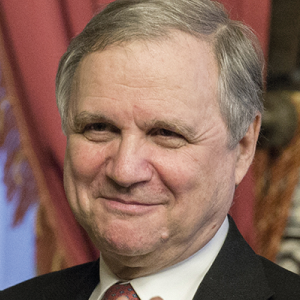
Ignazio Visco
Governor
Banca d’Italia

Yannis Stournaras
Governor
Bank of Greece

Dr Sabine Mauderer
Member of the Executive Board
Deutsche Bundesbank

Sylvie Goulard
Deputy Governor
Banque de France

Martin Flodén
Deputy Governor
Riksbank

Serey Chea
Assistant Governor
National Bank of Cambodia

Chuchi Fonacier
Deputy Governor
Bangko Sentral ng Pilipinas (BSP)

Gabriel Makhlouf
Governor
Central Bank of Ireland

Jingdong Hua
Vice-President and Treasurer
The World Bank Group

Adrian Orr
Governor
Reserve Bank of New Zealand

Mário Centeno
Governor
Banco de Portugal

Eila Kreivi
Director, Head of Capital Markets Department
European Investment Bank
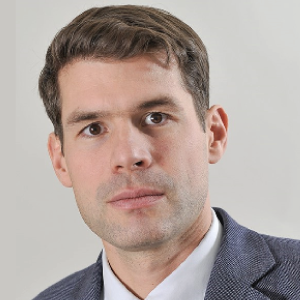
Wilhelm Mohn
Global Co-Head of Corporate Governance
Norges Bank Investment Management

Thorsten Meyer Larsen
Head of Reserve Management and Collateral
Danmarks Nationalbank
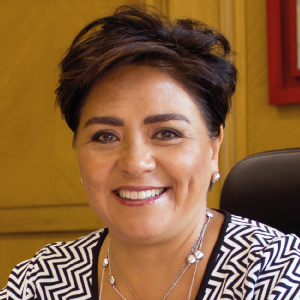
Irene Espinosa-Cantellano
Deputy Governor
Banco de México

Patrick Harker
President and Chief Executive Officer
Federal Reserve Bank of Philadelphia

Jakob von Weizsäcker
Chief economist
German Federal Ministry of Finance in Germany

Sarah Breeden
Executive Director, Financial Stability Strategy and Risk and member of the Financial Policy Committee
Bank of England

Nathan Fabian
Chief Responsible Investment Officer
PRI,
Chairperson
European Platform on Sustainable Finance

Ivan Faiella
Director
Banca d’Italia

Margaret Kuhlow
Finance Practice Leader
WWF

Elizabeth Maruma Mrema
UN Assistant Secretary General & Executive Secretary
Secretariat of the Convention on Biological Diversity

Patience Oniha
Director-General
Nigeria Debt Management Office
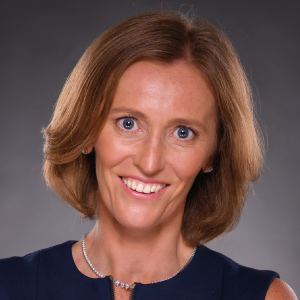
Benedicte N. Nolens
Head
BIS Innovation Hub, Hong Kong

Fabio Natalucci
Deputy Director
International Monetary Fund

Flora Chao
Global Head of Funding
International Finance Corporation

Thierry De Longuemar
Special Advisor
Asian Infrastructure Investment Bank

Gilneu Francisco Astolfi Vivan
Head of Financial System Monitoring
Banco Central do Brasil

Peter Zöllner
Head of Banking Department,
Bank for International Settlements

Martin Spolc
Directorate-General for Financial Stability, Financial Services and Capital Markets
European Commission

Anne Simpson
Managing Investment Director
CalPERS

Lesly Goh
Senior Technology Advisor
World Bank

Herman Kamil
Head of Sovereign Debt Management Office
Ministry of Economy and Finance of Uruguay

Dr Simon Buckle
Head of Environment, Transitions & Resilience Division
OECD

Massamba Thioye
Manager, Regulatory Framework Implementation subdivision,
Mitigation division
UNFCCC secretariat

Gábor Gyura
Head of Sustainable Finance
Central Bank of Hungary

Nicolas Mackel
CEO
Luxembourg for Finance

Xiaochen Zhang
Principal Manager – Federal Financial
Worldwide Public Sector
Amazon Web Services
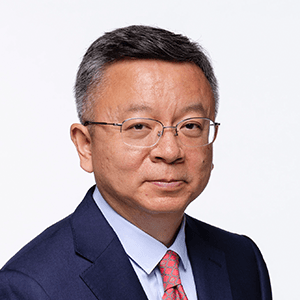
Bo Li
Deputy Managing Director
International Monetary Fund

Nneka Chike-Obi
Director, Sustainable Finance
Fitch Ratings
Themes

Monetary policy and market neutrality

Climate risk and mitigation frameworks

Scaling up sustainable capital markets

ESG reserves, investment and asset management

Just transition, emerging markets and moving beyond the ‘E’ in ESG

Data metrics, ratings and disclosure
Event at a glance
-
Virtual two-day event
-
30+ speakers from OMFIF’s global central banking community
-
Attendees drawn from policy-makers, investors and sustainability and ESG experts
-
Public panels and private roundtables
-
Exhibition stand area; open forums; bilateral meetings
-
Central banks reporting directly on monetary policy, investment, data metrics, disclosure and regulatory standards
-
Industry experts delivered the latest thought leadership
Become a partner in 2022
OMFIF’s SPI symposium provides an excellent platform for sponsors to showcase expertise and display leadership in their field, speaking to a global audience of public and private sector representatives. Sponsors of the symposium can engage with attendees in bespoke virtual exhibition stands and interact directly with speakers in private roundtables held during the conference.
If you would like to discuss SPI symposium partnership opportunities please contact spi@omfif.org.
In partnership with SPI members:

Symposium supporters:


